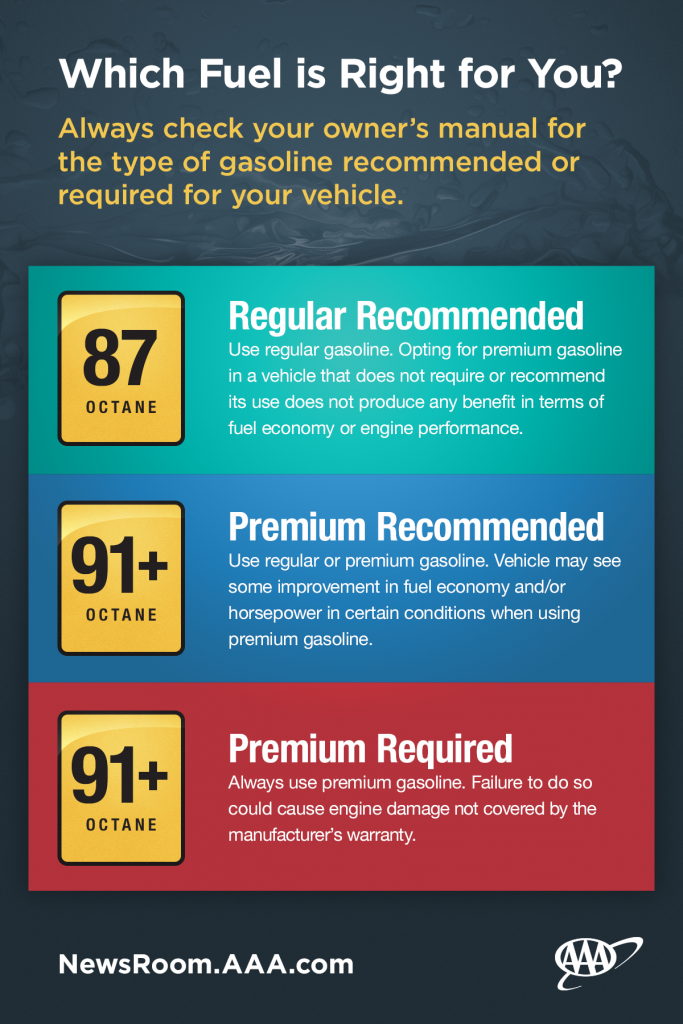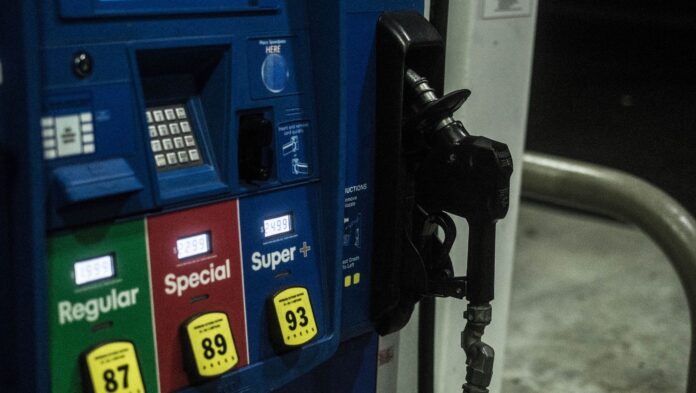We all see the different fuel choices when at the gas pump. But what really is the difference between regular, mid-grade and premium gasoline?
“Premium sounds like the best, but it might not be the best for your car’s engine,” says Dustyn Shroff, Vice President of GreatFlorida Insurance, Florida’s top independent auto insurance agency.
The difference between fuels has to do with octane. Fuel contains oxygen. The oxygen helps to keep the gas from prematurely lighting in the engine or knocking. Car and Driver explains, “A higher octane rating indicates greater resistance to knock, the early combustion of the fuel-air mixture that causes cylinder pressure to spike. When higher-octane fuel is flowing through its injectors, the engine controller can take advantage of the elevated knock threshold and dial in more aggressive timing and higher boost pressures to improve performance.”

Octane ratings differ slightly between states. In Florida 87 is regular, 89 is mid-grade and 91-93 is premium. Consult your car’s manual to know the required gas for your vehicle. If it states, “Premium Unleaded Fuel Only,” that is a requirement. But often drivers mistake the manufacturers recommendation as requirement.
According to U.S. News, “Modern vehicles are designed to include knock sensors, which can change the timing of a spark plug to help prevent engine knock. Cars with a premium fuel recommendation can run normally on lower-octane fuel, but you won’t realize the car’s full potential without higher-octane fuel.”
You might want to test it for yourself. Let your car get on empty as you feel comfortable, then fill it a quarter tank with premium, drive and observe your vehicle’s performance. Do the same with the regular to determine the difference.
The most obvious difference between regular and premium gas is the price,” says Dustyn Shroff, Vice President of GreatFlorida Insurance, Florida’s top independent auto insurance agency.
It’s true, the higher the octane, the higher the price. However, higher octane doesn’t always mean better performance, that depends on the engine’s technology and additional factors under the hood.
Other facts about premium gas, raising the octane rating doesn’t change the energy content of a gallon of gasoline. Also, using a higher octane gasoline will not help clean your engine. The U.S. Environmental Protection Agency (EPA) requires all commercially sold gasoline to contain engine cleaning detergent additives that can help extend the life of your vehicle. This means that your engine will be cleaned the same by 87 octane fuel as it will by 93 octane fuel, so don’t feel that it’s necessary to treat your car to a higher grade.
GreatFlorida Insurance offers dependable and affordable car insurance with as much coverage as you desire, contact us today.

https://www.greatflorida.com/florida-auto-insurance



